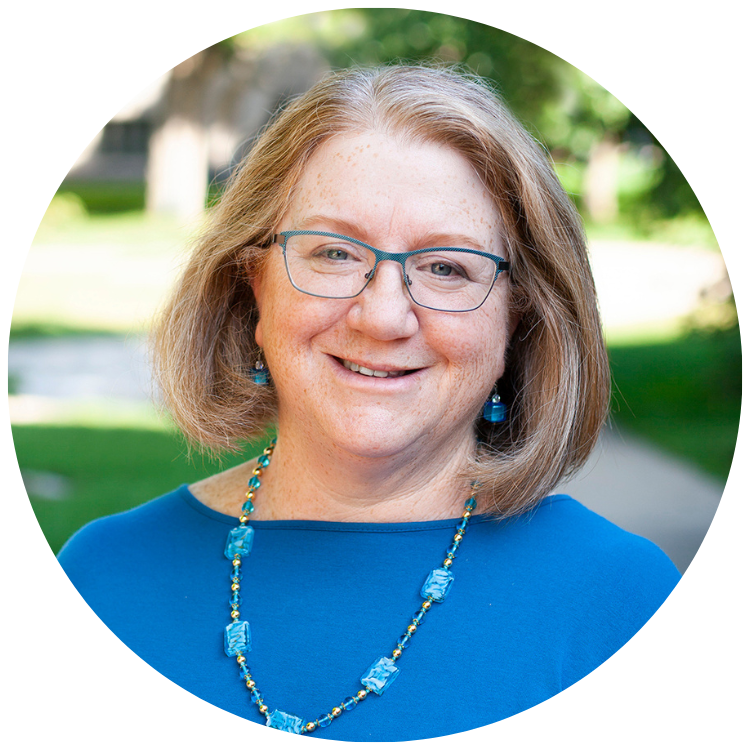Sabbath as Mortality Check
Dec 20, 2023
When Life Blurs Together
Scripture: Genesis 1:1–2:3
During the pandemic, I would often turn to my husband and ask, “What day is it?”
Maybe it was just because he was tired of the question, but he finally started responding with, “Blursday. It’s Blursday.”
Do you remember that feeling? Or maybe for you, that feeling wasn’t limited to the darkest days of the pandemic. Maybe your days are still running together—and your weeks, for that matter. There might be an occasional vacation, wedding, or birthday to break the monotony, but mostly, life blurs together.
Life doesn’t have to be that way. In fact, the Bible’s first creation story suggests that it’s not designed to be that way. Genesis 1:1–2:3 describes a rhythm of work and rest woven into all creation. Even God takes a break, after all, and at the end of those six exquisite days of creating, invites all of creation to share the joy of Sabbath rest.
Whether we take this story literally or figuratively, it is important. It reveals essential information about who we are in relationship to our creator. As author Norman Wirzba puts it, “Without the Sabbath . . . faith, but also life itself, is in peril of losing its most basic and comprehensive orientation and purpose.”[1] In other words, ignoring Sabbath is serious business!
So, why do so many of us try? Why is it so easy to slip into an endless series of “Blursdays”?
The answers to those questions are complex, and we’ll only scratch the surface in this short space. But here are a few “discussion starters,” if you will.
Sabbath as Mortality Check
First, we need to acknowledge that some people simply have no choice in the matter. Working seven days a week is not an option but a grim necessity. So, this raises justice issues.
But what about those who could take a Sabbath once a week but don’t? What’s that about?
Some of us are just super-conscientious. We have a high sense of responsibility and a low threshold of guilt. We take him at his word when the Apostle Paul tells us to “be not weary in well-doing” (Gal. 6:9, KJV). People are depending on us, after all!
Ok, that sounds like a good reason. But I wonder what would happen if we were to dig a little deeper. Could some of our resistance to Sabbath have to do with our failure to acknowledge our own mortality?
In his book Four Thousand Weeks: Time Management for Mortals, Oliver Burkeman points out that “the average human life span is absurdly, terrifyingly, insultingly short. . . . Assuming you live to be eighty, you’ll have had about four thousand weeks”[2] on earth. While the Bible might take issue with the “insultingly” part, passages like Psalm 90:9–10 agree with Burkman’s basic mortality check. “Our years come to an end like a sigh,” the psalmist says. “The days of our life are seventy years, or perhaps eighty if we are strong; even then, their span is only toil and trouble; they are soon gone, and we fly away” (NRSV).
So, if life is short, doesn’t that argue for packing in as much as we can? We’ve only got 4000 weeks, after all! Who has time for Sabbath?
That, however, is a false—and arguably idolatrous—line of logic. The whole point of admitting our mortality is—well—to admit we are mortal! Face it. We are not designed to live forever. We are not designed to work without rest. And to circle back to Genesis for a moment, if even the Immortal One takes a break, why can’t we?
Back in the depths of the pandemic, I began to realize that my days didn’t have to run together. I began to realize that not every day was “Blursday.” I began to realize that I didn’t have to work until I dropped; I only had to work until the Sabbath Day, and then I could take a guilt-free, life-sustaining, God-celebrating break.
It’s a lesson I’ve carried with me as we emerge from the pandemic. Sabbath is a holy rhythm of rest and delight, and I, for one, am never going to give it up.
Additional Resources to Use With This Lesson
Bonus Quote: “To rest, we must accept Nature’s limits and our own. When we come to our limit, we must be still” (Wendell Berry, This Day: Collected and New Sabbath Poems 2013, p. xxiii).
Link for Scripture Reading: The Creation Story – Armstrong & Ferguson – This video features Anton Armstrong reading the Genesis 1:1–2:4a creation story with organist, John Ferguson, improvising/interpreting in the background.
Suggested Hymn: “I’m Gonna [Rest] So God Can Use Me” Glory to God 700 (adapt the hymn by adding a verse with the word rest in place of the word live).
[1] Living the Sabbath: Discovering the Rhythms of Rest and Delight (Brazos Press, 2006), p. 13.
[2] Oliver Burkman, Four Thousand Weeks (Farrar, Straus, and Giroux, 2021)
*This material was originally created as an online supplement for the Presbyterian Women/Horizons Bible study, Celebrating Sabbath: Accepting God’s Gift of Rest and Delight by Carol M. Bechtel, a nine-lesson Bible study published by Presbyterian Women in the Presbyterian Church (U.S.A.). Learn more or order the study (available in multiple editions) at www.presbyterianwomen.org/bible-study/celebrating-sabbath.
Doctor of Ministry Cohort: Seeking Sabbath
Learn more about the upcoming Doctor of Ministry cohort, Seeking Sabbath in a Frantic World: Transformative Practices for Ourselves and Our Ministries
Articles
